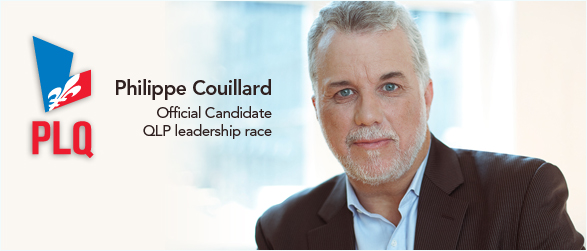With a little over a week to go until the Quebec Liberal Party elects a new leader, a leading contender for the post is facing questions over his work at McGill University during a four and a half year absence from politics.
Dr. Philippe Couillard, the neurosurgeon and former Quebec Health Minister widely considered to be the front-runner to replace former Premier Jean Charest, was appointed Senior Fellow in Health Law at McGill University in January 2009, shortly after his resignation from politics in the summer of 2008.
According to sources at McGill, he held that position until April of 2012, a period of over three years, or ten academic semesters. At the time of his hiring, it was announced that he would be joining the McGill Research Group on Health and Law, and his responsibilities would include “teaching, special lectures and research.”
However a search of Minerva, McGill’s electronic registration system, shows that he taught only two courses over his time at McGill, one in the fall semester of 2009 and another in the fall semester of 2010.
This appears to be at odds with Dr. Couillard’s campaign website, which states that he was “appointed Senior Fellow in Health Law at McGill University in January 2009, and taught there from January 2009 to December 2011.” Minerva records show Couillard did not begin teaching until Fall of 2009, and did not teach at all in 2011.
“Here at McGill, we’re seeing budgets being slashed across the university, and these cuts are having a profound impact on students and the quality of our education,” said Jimmy Gutman, a Student Senator with the Student Society of McGill University who researched Couillard’s teaching record.
“If he was doing research he certainly didn’t publish any of it. I think students and taxpayers alike deserve to know what he was paid, and what work he did for the university.”
Dr. Couillard did not respond to repeated requests for comment directed to press secretary Harold Fortin, and did not reply to a request for a list of what duties other than teaching he performed for the university. McGill promised to, then failed to respond to a series of questions submitted in writing.
Wendy Thomson, a faculty member in the McGill Research Group on Health and Law, said that although she did not work directly with Couillard, she remembered him being around and suggested that his case is not comparable to that of Arthur Porter, the former MUHC head who was publicly criticized for drawing a teaching salary without teaching any courses. “[Couillard] taught a course or two on healthcare policy… he was certainly visible and present in the university.”
“For me it’s about transparency,” continued Gutman, who says he will raise the issue at the next meeting of the university’s Senate. “If he was doing something other than teaching, why won’t he or the university tell us what that was? Why won’t they disclose his salary, which is paid out of our tax dollars? If he was paid a significant salary for over three years to teach two courses then I believe that’s a misuse of public funds.”



